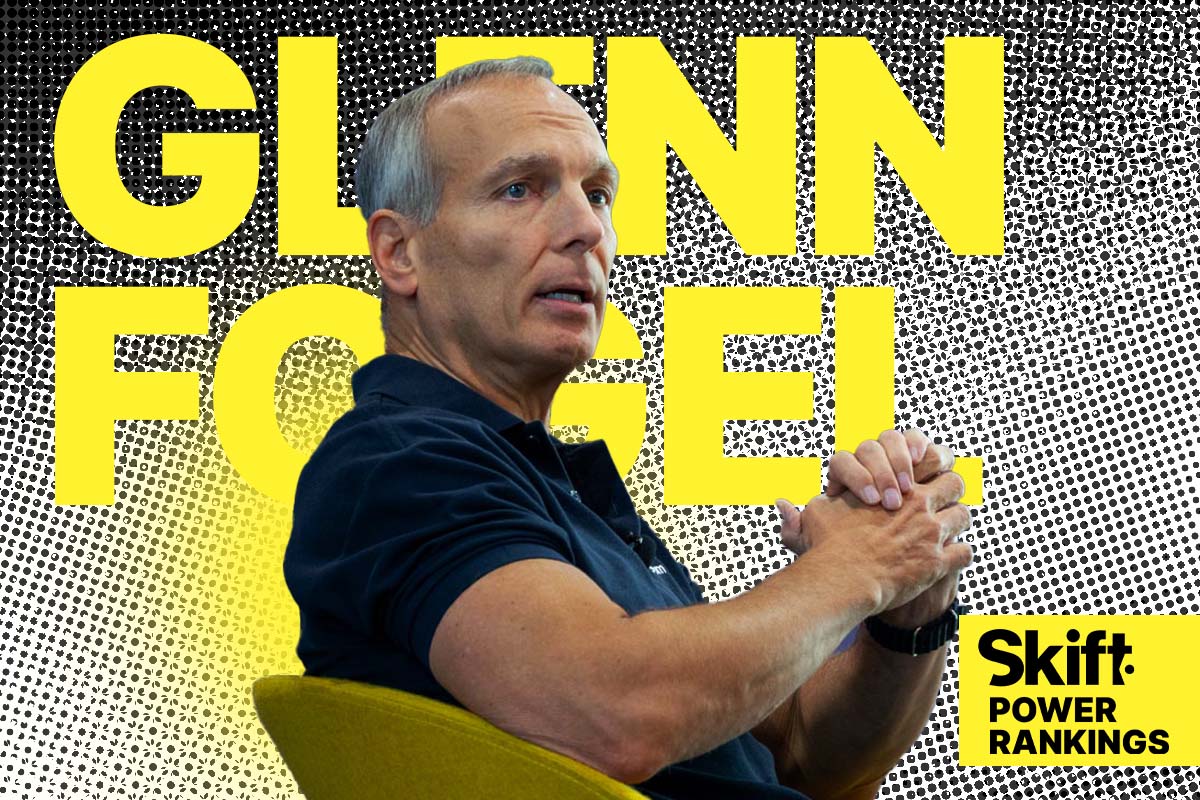Skift Power Rankings: Glenn Fogel

Skift Take

Booking Holdings is now the largest travel business and one of the most profitable, and current CEO Glenn Fogel played a key role in putting all the pieces together starting two decades ago.
In 2004 and 2005, as head of corporate development for Priceline, he led the acquisitions of the UK’s Active Hotels and the Dutch accommodations site Bookings, which a year later merged to create Booking.com. In 2018, Skift characterized it as the “greatest acquisition in online travel history.”
“Glenn Fogel is a great guy, who did all the right acquisitions when everybody did the wrong acquisitions,” tech and startup investor Arthur Kosten told Skift in 2018. Kosten previously served as Booking.com’s chief marketing officer.
Fogel has presided over big changes at Booking Holdings since becoming president and CEO in 2017, and also CEO of its biggest brand, Booking.com in 2019.
Among them, the company has pushed to expand even more beyond its core hotels product and to put additional resources into what it calls “alternative accommodations.” In so doing, Booking.com has developed its own payments platform to enable travelers around the world to transact in their own currencies, and has tilted the company more heavily toward becoming the merchant of record rather than hotel middleman.
In 2019, accommodations-heavy Booking.com launched its own flights business, which has been expanding steadily.
Flights, as well as accommodations, car transport and activities, are part of Fogel’s “connected trip” strategy, a multiyear effort to get travelers to book more elements of their trip through Booking.com or sister brands Priceline, Agoda, or Kayak. The jury is out on whether travelers want such a mashup.
Fogel has many fans in the online travel community. Asked about Booking.com’s slow progress in U.S. short-term rentals, HomeAway co-founder Carl Shepherd said at a recent Skift event: “I never bet against Glenn Fogel. He’s a really smart guy.”
Dutch politicians and Booking.com’s works councils in its home base weren’t as enthusiastic about 2020 pay packages awarded to Fogel and its chief financial officer, $7.1 million and $24 million, respectively. The next year, following the criticism, Booking returned $110 million in Covid-relief to the Dutch and other governments. Fogel’s 2023 package was $46.7 million.
The European Commission has targeted Booking.com alleged dominance in the hotel business, and designated it a “gatekeeper” and subject to certain restrictions.
Fogel, a former lawyer and investment banker, has been a Booking Holdings employee since February 2000, when the company was called Priceline. That means he’s been at the company through the Ebola and Zika outbreaks, swine flu, and Covid-19, as well as several natural disasters and wars.
He’s fond of telling anyone who’ll listen that it is prudent to take a long-term view of his company and the future of travel.
“I continue to say the important way to view value in this company [is] in the long run …. What have we done over the last 24 years here? Continue to increase the value, bring in more customers and more suppliers and continue to produce more cash flow for our investors,” Fogel said.





